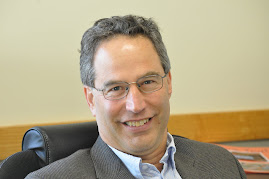I spent the morning of today’s professional development day with the middle school faculty as they worked on improving projects even more. The morning session was structured like a mini-project. Faculty started by sharing stories of project successes and frustrations and then generating questions they would like to see addressed in the workshop. I snapped a picture of one’s groups “wonderings,” as I saw it indicative of the deep thought that goes into developing great projects. See the sheet below:
I noticed the intellectual tension in the “what do you do if it is not good?” question. Teachers want and will guide students into doing their best work. But, what do you do if despite that the student is not producing how they should. Inherent in the question is the struggle between allowing students autonomy and insisting on teacher control. One team mentioned that after they allowed some substandard work at the culmination, the student commented in his post project reflection that his work was subpar and strategized how to improve it for next time. That is real learning. Others talked about how some work needs to be improved before it is published, if it falls below minimum standards. Finally, there is no right answer. Much of this is the art of knowing how to best motivate students (or let them motivate themselves) and that differs depending on the child.
I do know that these days, when teachers can focus on their professional growth, are something to be thankful for.





